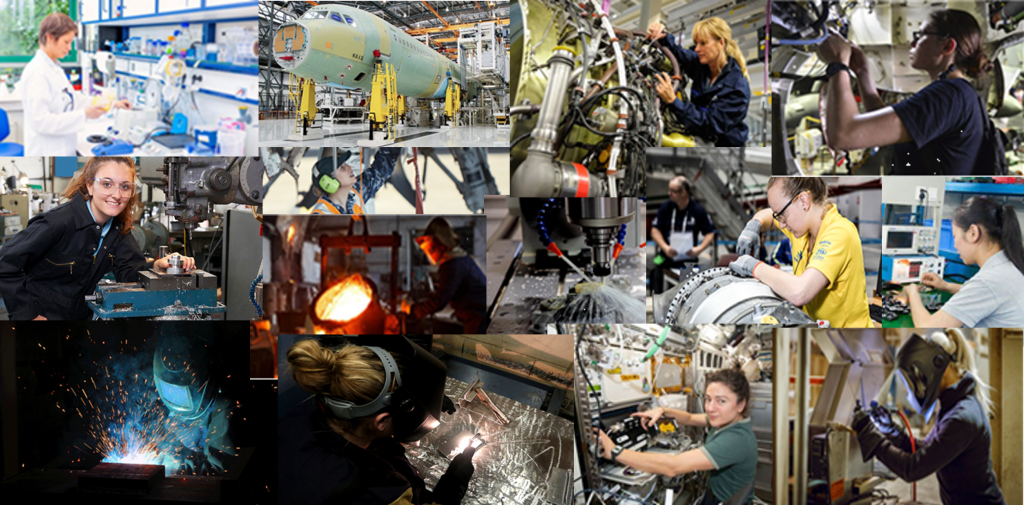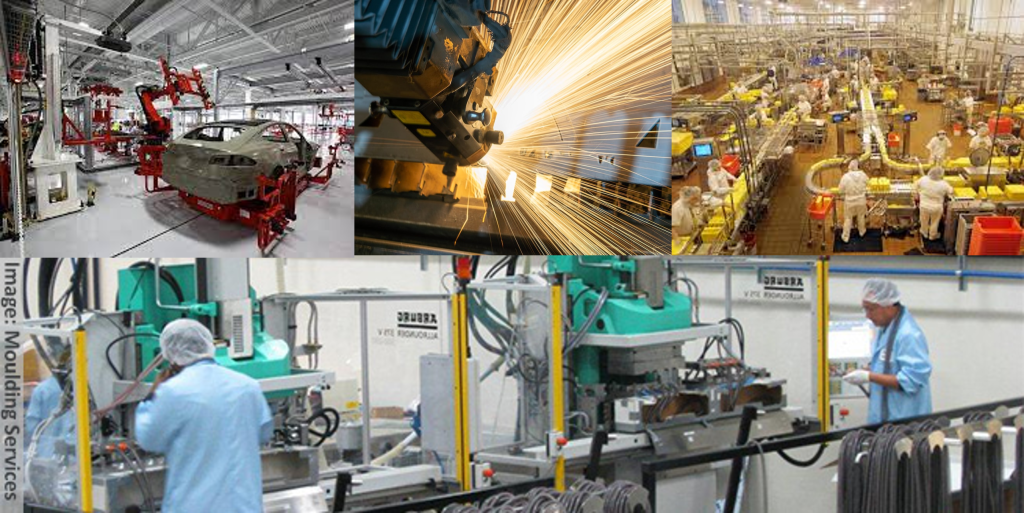A series of helpful resources have been developed to help provide information and guidance for key occupations and careers in the Manufacturing industry. These include Job Guides, Career Resources, Career Flow Charts and other supporting materials which are listed below and can be downloaded by clicking on the specific resource.

Metal, engineering, and associated industries
Australia’s metal, engineering, and associated industries is highly diverse, with many businesses producing a wide variety of products, structures, articles, parts, components, materials and substance that are used in a range of economically significant downstream industries. Construction, manufacturing, energy, mining and agriculture industries are the main consumers of these products. Most businesses in these industries are small to medium enterprises. In these industries manufacturing is the process of transforming raw materials or parts into finished products or goods through the use of technology, tools, labour, and processes; increasingly through additive or advanced manufacturing technologies, techniques and practices that add value to the original form.
Businesses in these industries employ many different experts, including engineers, paraprofessionals, technicians, process specialist workers, engineering trades, and other allied specialists in the conversion process.
It involves people who conceive, design, manufacture, assemble, install, repair, maintain, package and sell manufactured products. It includes but is not limited to – food processing, textiles, beverages, wood products pulp & paper, printing, chemicals, metal and plastic, electrical & electronic equipment and components, machinery & equipment, prefabricated buildings and furniture, household goods, cleaning products, explosives, pharmaceuticals and many more.
Australia’s manufacturing industry currently contributes around $100 billion to Australian GDP annually and employs around 900,000 Australians. (ABS in 2020).
A key sector of the metal, engineering, and associated industries is steel fabrication. It is a highly diverse sector, with a large number of businesses producing a wide variety of steel fabricated products that are used in a range of economically significant downstream industries. Construction, manufacturing and mining industries—are the main consumers of steel fabricated products. Most steel fabrication businesses are small to medium enterprises. Metal fabrication is the process of building machines and structures from raw metal materials. The process includes cutting, burning, welding, machining, forming, and assembly to create the final product.
Metal fabrication projects include everything from hand railings to heavy equipment and machinery.
Australia’s manufacturing and engineering industry also includes the Aerospace sector, which is responsible for maintaining and repairing commercial and military aircraft, as well as manufacturing aircraft and aircraft components. There were 920 businesses employing 10,900 people in 2018, with 80% of businesses located in New South Wales, Queensland and Victoria.
Related work activities in manufacturing and engineering:
Laboratory Operations:
Laboratory Operations is not an industry sector as such. It refers to a diverse group of certain technical and scientific occupations such as Samplers, Testers and Laboratory Personnel that appear across industries.
Most jobs are within the Automotive, Food and Pharmaceutical Production or Manufacturing industries. Laboratory Services play a critical role in the safety, quality and compliance of many industry sectors and for this reason, the sector is highly regulated.
Quality Assurance:
The Australian food processing sector of the manufacturing and process industry is diverse and internationally recognised for producing high-quality processed foods. An array of other manufacturing and processes industry sectors too, rely extensively on quality assuring the manufacture and production of products and goods to meet specifications and standards. This makes quality assurance an important function within an organisation.
MANUFACTURING RESOURCES
1. JOB GUIDES
- Aircraft Maintenance Technician Job Guide
- Engineering Production Worker Job Guide
- Laboratory Technician Job Guide
- Mechanical Fitter Job Guide
- Metal Fabricator Job Guide
- Quality Assurance Officer Job Guide
2. CAREER RESOURCES
- Aircraft Maintenance Technician Career Resource
- Engineering Production Worker Career Resource
- Laboratory Technician Career Resource
- Mechanical Fitter Career Resource
- Metal Fabricator Career Resource
- Quality Assurance Officer Career Resource
3. CAREER FLOW CHARTS
- Aircraft Maintenance Technician Career Flow Chart
- Laboratory Technician Career Flow Chart
- Metal Fabricator Career Flow Chart
- Quality Assurance Career flowchart
GENERAL RESOURCES:
Media

Promotional materials
Manufacturing industry resources for industry, employers, RTOs, apprentices and career aspirants: Manufacturing Skills Australia (MSA) RESOUCES
Manufacturing industry sectors and careers information: MANUFACTURING CAREERS
Resource and website visitor feedback survey
The resources have been developed in consultation with industry and the website has be assembled in line with the project objectives and resources arrangement. To maintain both current, error free and relevant we invite you to review them and provide feedback at your convenience via the following links:
Return to MAE Career Resource Centre – CLICK HERE
